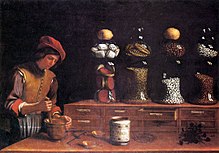Julia Alvarez
Appearance
Julia Alvarez (born March 27, 1950) is a Dominican-American poet, novelist, and essayist.
Quotes
[edit]- Mine was an oral culture, full of storytellers, but reading and writing were not encouraged. (No public libraries, no free press!) Coming to the United States suddenly thrust me into a world where I was an alien, where I spoke the language with an accent. This abrupt and painful “translation” led me to the company of books, the homeland of the imagination where all were welcomed. In trying to master my new language of English, I had to pay attention to words, their little reputations and atmospheres, their exact weights and balances, their smells and sounds and textures…
- On how she transitioned from an oral to written culture in “Interview with Julia Alvarez” (Chicago Public Library)
- History, I was learning, is the story we tell ourselves about what really happened. My task as a writer/novelist was to try to get as many versions of that reality and then imaginatively construct the story. The fact that there were so many versions of what really happened should not surprise us: After all, we experience history as individuals through our particular characters, personalities, points of view. This reality of how we live history ideally suits the form of a novel, which focuses on “the truth according to character.
- On choosing to write In the Time of Butterflies as a fictional rather than biographical work in “Interview with Julia Alvarez” (Chicago Public Library)
Homecoming (1984)
[edit]Rolling Dough
[edit]
the pastries puckered

The Spice Shop (1637)
Paolo Antonio Barbieri



Theseus Mosaic, 4th c. AD.
Kunsthistorisches Museum
Vienna, Austria
- The pies browned, the pastries puckered
in the cavernous oven I waited to open.
- Gloved with two potholders, I listened
while she told me not long ago
a girl could not marry until she could roll
her dough so transparent her beloved
could read his Bible through it.
- I dreamed of stretching my pastry dough out
to cover the earth with a crust so fine
my love would think it was nothing
but the world at his feet,
baked by the summer sun,
dusted with cinnamon.
What Could It Be?
[edit]- The tarragon dotted the rice in the cauldron.
And now, as if signaled, the spice jars popped open,
unladened their far east wonders:
cumin, turmeric, saffron, and endives.
The aunts each put in a shake of their favorites.
The steam unwrinkled their frowns from their faces.
- ...the aunts stopped in in the middle of swallows,
heads cocked... as if they had heard
...their own baby crying.
It needed a pinch more of saffron? Paprika?
- The uncles ate seconds and rose in a chorus
...empty plates glowed like the eyes of the spellbound.
New Clothes
[edit]- I remember the whirr and whine of her black Singer,
the gold traceries on the cast iron rod
by the wheel that lifted and lowered the needle.
Threading, eyepieces, winding the turquoise string
through hooks, around miniscule wheels, up and down,
her Ariadne hands clever in labyrinths,
...the needle racing through gingham, poplin, seersucker, cambric,
the pedal pressed heavily down with the weight of one woman,
eye intent, hands feeding and receiving the fabric.
- threading her needles, winding her threads;
the spools sat in their rods in the sewing box,
ends tucked in the notch on the flat tops,
a palette of greens, laurel, mint, olive, aquamarine,
shorts, skirts, blouses, dresses, and nightgowns—
better than storebought.
- ...the furious whir of the Singer.
33
[edit]- But my house, though protected
with charms, can't block the spell mortality
has cast... I turn thirty-three.
- My friend Carol says aging evens out
the advantage of beautiful women
over plain ones. ...
Where are the girls who were beautiful?
- My gay friends ask, Well are you gay or what?



after a snowstorm.

- 33 is the year that Jesus Christ
embraced His life...
...Wasn't he crucified at 33,
I ask, depressed, deserted by his friends,
divorced from god, subject to human laws?
Wasn't he the most single finally
at 33, meeting his lonely end?
Yes...
- Are we all with acute loneliness,
chronic patients trying to recover
the will to love?
...Sometimes the love
of another wounded one acts like a salve
which soothes the dying self but cannot heal
our lives. And perhaps this is what it feels
like to be human, and we are all well?
- It's UPS
with two parcels! ...
a handsome lad, guesses it's my birthday
and asks how old I am. He acts surprised
he's a decade younger. We linger at the door
one of us is not immortal anymore.
- I'm watching a romantic play
in Plato's cave; half the time I don't
believe in it...
Other times I'm so addicted I'm one of the mainliners...
hallucinating that in truth a man's
body is one of the Absolute Forms.
I look around when the houselights come on
and see no one!
- I say, Don't trust those men with better,
bigger versions of love if they refuse
the small, shabby sample they gave others
the tribute of believing it was true.
- I was driving down the mountain, the curves
were bad, I wasn't going slow, the day
was one of those that takes your breath away...
On hilltops, I made believe I'd take off
into the absolute, but as I swerved
again and again...
and as the sun's
autumnal, soporific light shone on...
something gave in me and I let go—
this driving need to make it all mean more.
In time, I turned the wheel back to the road.
- I tried to listen, take notes ...
...and stared out
on the New England meadow straight from Frost:
acres of grasses and flowers tossed by
a wind which whirled with the continual
roar of a thousand voices from Babel.
“Julia Alvarez interview: In the time of discovery” in The Writer (2016 Aug 4)
[edit]- Even though they’re that unit of four sisters, they’re also individuals. One will find her way of integrating that transition or failing at it, but I think that throughout, the telling of stories – the mother tells stories, the father tells stories and the daughters tell stories to each other – becomes the string in the labyrinth for them. Storytelling. Stories create meaning and structure out of the chaos. They are a blueprint for experience. I think that is part of how they’re all helped, some more successfully than others.
- On the individual journeys of the female protagonists in How the Garcia Girls Lost Their Accents
- The typical Bildungsroman, the novel of growing up, first of all traditionally involves a single character reaching a kind of epiphany or self-realization, and it has a forward trajectory, which is the classic structure of the novel. But I wanted to structure the novel so that the reader can experience, not by being told but shown, what it feels like to be an immigrant – you’re always going back, going back to where you came from to measure who you are today. So plot in a novel is not just how you’re going to fit all the pieces together or how you’re going to do the chronology. Plot is more sophisticated than that. It’s a way of structuring the way the reader thinks and feels.
- On how the immigrant experience framed her narrative in How the Garcia Girls Lost Their Accents
- I was looking for books and stories and novels that addressed our history in the Americas. And there weren’t that many for young readers. I saw that they had a lot of books about the Holocaust and about slavery, but not that much about kids growing up in a dictatorship up and down the Americas, which was the phenomenon of the last century in many of our countries. Many Latinos in the Dominican Republic had grandparents or parents who had fled from dictatorships. I wanted our own Anne Frank story. And that was really the story I set in the Dominican Republic in the Trujillo dictatorship.
- On the inspiration for writing In the Time of Butterflies
- I’m more in the Faulkner tradition. I’m writing my Spanish in English. Florid, flowing, expansive, rococo sounds, the sonority of Spanish closer to the Latin roots than the English, which has been also infused with Anglo Saxon, Germanic words. Really, it’s part of my English. It’s how I write English.
- On her writing style
- (What moves you most in a work of literature?) JA: Accuracy of language and perception — the writer is not striving for effect and gets out of the way to let us see the world through the lens of language. I love what the poet Stanley Kunitz said about dreaming of “an art so transparent that you can look through and see the world.” That pretty much sums up what I most admire in a work of literature.
- I like to start the writing day with poetry; like the choir master sounding a note on his pipe, it sets the standard high (“No approximate words in a poem,” Dickinson says) and puts me in the right register. Novels are great for breaks — a reward and relief from the labors of writing.
- Writing is hard work, a huge commitment of time, energy, faith, passion, and there’s nothing shameful in the attempt, even if the work doesn’t end up succeeding. I’d rather let someone else do the public culling — I’m exacting enough in private.
- what I know from experience: that writing is a vocation and a practice over a lifetime, with its ups and downs. It teaches me humility, the great democracy of each time having to start over.
Quotes about Julia Alvarez
[edit]- In the worlds of film and television, cultural gringoism is almost pathetic. Mainsteam recognition of Chicano and Chicana homegrown authors did not begin until the discovery that the Raza world could be colorful, amusing, exotic, magical. Rarely was that world projected as full of anger at racism, struggles for justice or revolutions of the body and spirit by women as well as men. Now come the new books of Julia Alvarez and Demetria Martínez, both with radical political themes. They have garnered flattering reviews, but profound political or social questions raised in both books have gone ignored; most critics seem happier with the romancing...Julia Alvarez, now a professor at Middlebury College, was brought to the United States at age ten by her family to escape Trujillo's repression. After her first successful and lighter book, How the Garcia Girls Lost Their Accents, Alvarez took up the challenging task of telling the story of the butterflies. Some Dominicans have berated the author for supposed errors. The book isn't perfect reading; it tells almost nothing about issues of class and color or the Afro-Dominican experience, for example. But the book remains a treasure, for Alvarez has told a story unknown to most people in this country and told it unforgettably. In her last message about the butterflies, the author says: "by making them myth, we lost the Mirabals once more, dismissing the challenge of their courage as impossible for us, ordinary men and women." This she seeks to correct by making them real people, whose courage is thus made real, too.
- Elizabeth Martinez De Colores Means All of Us: Latina Views for a Multi-Colored Century (1998)
- In writing about Margarita and Julia, I received a sign in the fall of 1986 that these poems were complete and ready to emerge. I met two women poets who have these names and who have had an impact in my life: Margaret Randall and Julia Álvarez.
- Luz María Umpierre The Margarita Poems (1987)

